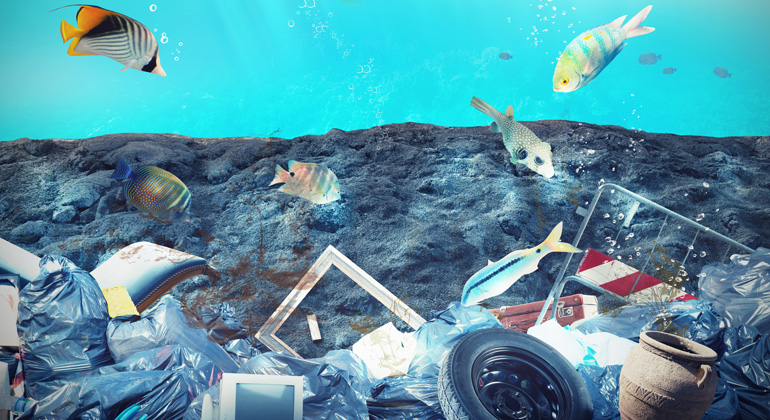Sturmius Wehner Stiftung Zukunft

The UN Conference on Plastic Pollution was supposed to conclude yesterday in Geneva. Representatives from approximately 170 countries met last week Tuesday to negotiate an agreement to regulate the production and handling of plastics in order to get the global flood of plastics and the resulting dramatic environmental pollution under control. Preparations for this agreement began in 2022. This was the sixth round of its kind, after a breakthrough was not achieved at the originally scheduled final conference in December 2024 in Busan, Korea. The agreement is intended to regulate the entire life cycle of plastics: production, use, and final disposal.
The first plastic was presented at the World Exhibition in 1862. But it wasn't until World War II that mass production began, initially for military purposes, before widespread commercial use gained momentum after the war's end. Plastic was inexpensive, lightweight, robust, and durable. Today, plastic is found almost everywhere: cars, electrical equipment, tools, computers, furniture... the list is endless. In addition to everyday objects, plastic is also a major material in packaging, meaning it usually ends up in the trash immediately after use.
In 1950, global plastic production was less than 1 million tons. Today, over 500 million tons of plastic are produced annually. That's 500 billion kilograms. Estimates predict a threefold increase by 2060. Over 44 percent of current production goes into packaging, which is then disposed of. Worldwide, only about 10% of production is recycled. The rest is incinerated, deposited, or simply dumped into the landscape. 10 million tons of plastic enter the oceans every year, of which only the smaller tail remains at sea level and is thus unsightly visible. The majority sinks to the seafloor and spreads as an invisible garbage dump. According to one estimate, by 2050, there could be more plastic items in the sea than fish, measured by weight. To date, a total of 152 million – in words onehundredfiftytwo million – tons of plastic waste have accumulated in rivers and oceans worldwide.
Consumer behavior varies widely: The highest per capita plastic consumption worldwide is in the USA at 216 kilograms, in Europe it is 86 kilograms, and the lowest in Africa at 13 kilograms.
It's certainly not a pretty view when a visitor to public squares and streets, or a walker in the bushes, notices carelessly discarded plastic cups, chip bags, or soda cans, prompting the question, "Does that really have to happen?"
But beyond that, there are substantial problems: Plastic is not biodegradable. It only breaks down into tiny particles, which are nevertheless still there. A plastic bottle - emptied in a few minutes and thrown away—takes up to 450 years to decompose into its tiny pieces. That's the downside of durability.
When plastic is burned – 38% in Europe, 60% in China, and 70% in Japan – pollutants such as dioxins, chlorine, carbon dioxide (a known greenhouse gas), carbon monoxide (a respiratory poison), and carcinogenic aromatics are released.
Plastic has entered the human body: According to a WWF study, every person ingests about five grams of microplastics per week through food, air, and skin contact – equivalent to the weight of a credit card. The microplastics end up in the blood, liver, intestines, heart, brain, and breast milk. The health consequences have not yet been researched. However, plastic is also dangerous for animals such as birds and fish, which become entangled in it or ingest it, thus losing their sense of hunger without food or suffering internal organ damage – often resulting in death.
The article began by saying that the UN conference was supposed to end yesterday – it didn't and was extended to today. Despite this, a breakthrough on the agreement still hasn’t been achieved. The central problem is that plastics are primarily oil-based, and oil-producing countries like Saudi Arabia, Iran, and Russia are unwilling to comply with the planned production restrictions and the resulting economic losses.
Over the past week and a half, media coverage of the conference has been rather background and reserved. The limited progress made at the conference has been criticized several times.
The corresponding frustration is evident in a sentence from one of the climate researchers interviewed: "We should really consider whether we really care about future generations or not. At the moment, it doesn't seem that way." This question can also be asked with regard to various other topics.